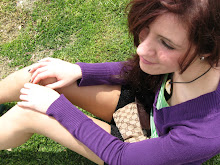 Salvia divinorum, also known as Diviner’s Sage, ska María Pastora, or simply by the genus name Salvia, is a psychoactive herb which can induce strong dissociative effects. It is a member of the sage genus and the Lamiaceae (mint) family. The Latin name Salvia divinorum literally translates to “sage of the seers”.
Salvia divinorum, also known as Diviner’s Sage, ska María Pastora, or simply by the genus name Salvia, is a psychoactive herb which can induce strong dissociative effects. It is a member of the sage genus and the Lamiaceae (mint) family. The Latin name Salvia divinorum literally translates to “sage of the seers”.(excerpt from http://en.wikipedia.org/wiki/Salvia_divinorum)
After being in college for five years, I thought I was fairly aware of the various kinds of recreational drugs that my peers in modern culture are dipping their feet into. So when I heard of Salvia, and it's LEGALITY, it caught me off guard. I starting asking my immediate friends about it; if they had heard of it at all or known people who have used. There were of course mixed responses but the majority of people I talked to knew perfectly well about its existence. Whatever your views on recreational drugs may be, I am writing this to spread knowledge, keeping my opinions aside to strictly educate. Keep this in mind as you read. All this information is being collected from sources beyond my own working brain and will be provided at the end of this blog.
While it holds a ceremonial and ritualistic value ("gift from the gods") from its historical and continued use among the indigenous Mazatec shamans who used the herb to facilitate visionary states of consciousness during spiritual healing sessions, the modern media has presented the plant as a threat to civilized society. Most often compared to marajuana, Salvia is usually smoked in some manner, but can also be plainly chewed. Unlike marajuana, Salvia has an active component called Salvinorin A, a psychoactive compound with hallucinagenic affects. When considered by mass alone, it is the most potent of its kind.
Let's talk chemistry. It's a trans-neoclerodane diterpenoid (chemical formula C23H28O8) and research has shown that it acts on the kappa-Opioid receptor. This is a unique characteristic as it has no action on a serotonin receptor that other "classic" hallucinagenic drugs act on, such as LCD. Studies also showed that its potency cannot be translated into toxicity; rodents have been tested with dosages greater than a human would be exposed to and surprisingly did not experience damage to organs. It's mental affects are daunting however (there are numerous videos on youtube of people sharing their experiences) and some have been specifically noted as the following:
increased insight
feelings of calmness
mind racing
floating feelings
unreal
improved mood
increased connection with the universe (WHAT?!)
With affects greatly similar to LCD, and a power that takes affect within 1-2 minutes, reaching its peak at about 5min, how is this stuff LEGAL?
I have heard lots of rumors lately that the Food and Drug Administration is looking into ways to make this substance illegal, but for in the United States, Salvia is not regulated under the Controlled Substances Act; some states, including Delaware, Louisiana, Missouri and others, have passed their own laws. It's just astonishing to me that something so powerful is on the market, and has been for so long, while even possessing pot is against the law and alcohol is A-okay. I'm not making any statement about the latter, merely comparing. Something to think about.

No comments:
Post a Comment